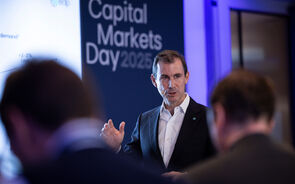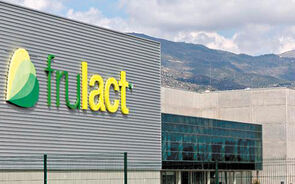Kass: Updating My 2010 Surprises
1 Mensagem
|Página 1 de 1
Kass: Updating My 2010 Surprises
This blog post originally appeared on RealMoney Silver on May 24 at 8:43 a.m. EDT.
"To predict the behavior of ordinary people in advance, you only have to assume that they will always try to escape a disagreeable situation with the smallest possible expenditure of intelligence."
-- Friedrich Nietzsche
We are now almost five months through 2010, and those past five months, similar to the 12 months prior that preceded them, have been one of the most tumultuous periods in financial history. Recently, the pleasure in place for the first four months of the year has been supplanted by pain and uncertainty.
What does the balance of 2010 hold? How do we profit? For some possible answers, it's time to grade and update my 2010 surprise list.
"I'm astounded by people who want to 'know' the universe when it's hard enough to find your way around Chinatown."
-- Woody Allen
For those new to TheStreet, a little background.
In late December over the past seven years, I have taken a page from former Morgan Stanley strategist Byron Wien, who is now Vice Chairman of Blackstone Advisory Services, and prepared a list of possible surprises for the coming year. (Byron had a very successful 2009 surprise list. Here is his 2010 surprise list.)
My surprise list is not intended to consist of predictions but rather events that have a reasonable chance of occurring despite the general perception that the odds are very long. I call these "possible improbable" events.
The real purpose of this endeavor is to consider positioning a portion of my portfolio in accordance with outlier events, with the potential for large payoffs, and to disprove Nietzsche, who said that we live the same life over and over again. Wall Street research is still very much conventional, almost universally bullish and consisting of nonvariant "groupthink" despite the attempts of reform over the past several years. Mainstream and consensus expectations are just that, and, in most cases, they are deeply embedded into today's stock prices. If I succeed in at least making you think about outlier events, then the exercise has been worthwhile.
Too often we are played as suckers as we just accept the trend, momentum and/or the superficial as certain truth without a shred of criticism. As a society (and as investors), we are consistently bamboozled by appearance and consensus. Just look at those who bought into the success of Enron, the financial supermarket concept at Citigroup (C), the uninterrupted profit growth at Fannie Mae (FNM) and Freddie Mac (FRE), housing's new paradigm of noncyclical growth and ever-rising home prices in the early to mid 2000s, Saddam Hussein's weapons of mass destruction, the heroic home-run production of steroid-laced Major League Baseball players Barry Bonds and Mark McGwire, the uncompromising principles of New York Governor Elliott Spitzer, the morality of our politicians (e.g., John Edwards, John Ensign and Larry Craig), the consistency of Bernie Madoff's investment returns (and those of other hucksters) and the clean-cut image of Tiger Woods.
Last year's surprise list proved how wrong "groupstink" and conventional wisdom can be. And while I failed to surpass my most successful year of surprises in 2008, during which 60% of the year's "possible improbables" were on target, I still had a very successful surprise list in 2009, with approximately half of our predicted surprises actually coming to pass. In fact, over the past three years (since and including 2007), at least 50% of our surprises proved accurate, which is up from one-third in 2006 and from 20% in 2005. Nearly one-half of 2004's prognostications proved prescient, and about one-third came to pass in the first year of our surprises for 2003.
In summary, investing based on some of my outlier events (particularly) in 2008, 2009 and 2010 would have resulted in high-return investment yields from several improbable and/or long-shot scenarios, would have protected investors somewhat from the market's downdraft (then prompted them to participate in the market's historic recovery from the generational low) and would have provided some healthy skepticism (helpful in navigating over the last half of 2008 and into early 2009 as well as the past month).
But that was yesterday, and we now face the present with a more-than-usual amount of uncertainty.
"I don't want to make the wrong mistake."
--Yogi Berra
While it is still early in the year, the six most important surprises for 2010 (better corporate profits and economic growth, a disappointing housing recovery, worse stock market performance, a stronger U.S. dollar and lower interest rates) have been on target, though, in the aggregate, the number of accurate surprises are down from previous years. That said, as we approach this year's halftime intermission, here are my grades and updates for my surprises for 2010.
1. There is a glaring upside to first-quarter 2010 corporate profits (up 100% year over year) and first-quarter 2010 GDP (up 4.5%). It grows clear that, owing to continued draconian cost cuts, coupled with a series of positive economic releases and a long list of company profit guidance increases in mid to late January and early February, there is a very large upside to first-quarter GDP (up 4.5%) and, even more important, to S&P 500 profit growth (which doubles!). The upside on both counts is in sharp contrast to more muted growth expectations. While corporate managers, economists and strategists raise earnings per share, full-year growth and S&P target estimates, surprisingly, the U.S. equity market fails to respond positively to the much better growth dynamic, and the S&P 500 remains tightly range-bound (between 1,050 and 1,150) into spring 2010.
Grade A-. Last year our No. 1 surprise -- namely, that the Russian mafia was laundering money with Madoff -- was accurate. This year's No. 1 surprise -- far better-than-expected corporate profits, far worse-than-expected performance of the S&P 500 -- has also proven accurate as second-half 2010 worldwide economic growth expectations are being questioned coincident with the eurozone crisis.
2. Housing and jobs fail to revive. An outsized first-quarter 2010 GDP (up 4.5.%) print is achieved despite a still moribund housing market and without any meaningful improvement in the labor market (excluding the increase in census workers) as corporations continue to cut costs and show little commitment to adding permanent employees.
Grade A-. The domestic economy has advanced despite housing's drag. Even with record affordability and low interest rates, the residential real estate market remains mired by reduced availability of mortgage credit, the persistent drop in wages and benefits, the specter of shadow housing inventory and an uncertain (though improving) jobs picture. While home prices have stabilized, sales activity and turnover of existing stock have been disappointing relative to expectations, especially in the face of an extension in the home tax credit.
3. The U.S. dollar explodes higher. After dropping by over 40% from 2001 to 2008, the U.S. dollar continued to spiral lower in the last nine months of 2009. Our currency's recent strength will persist, however, surprising most market participants by continuing to rally into first quarter 2010. In fact, the U.S. dollar will be the strongest major world currency during the first three or four months of the new year.
Grade A. The rise in the value of the U.S. dollar has been breathtaking of late.
4. The price of gold topples. Gold's price plummets to $900 an ounce by the beginning of second quarter 2010. Unhedged, publicly held gold companies report large losses, and the gold sector lies at the bottom of all major sector performers. Hedge fund manager John Paulson abandons his plan to bring a new dedicated gold hedge fund to market.
Grade F. Way off, I couldn't have been more inaccurate!
5. Central banks tighten earlier than expected. China, facing reported inflation approaching 5%, tightens monetary and fiscal policy in March, a month ahead of a Fed tightening of 50 basis points, which, with the benefit of hindsight, is a policy mistake.
Grade D. The crisis in the eurozone -- still weak unemployment, etc.-- has deferred a domestic rate rise until 2011 at the earliest.
6. A Middle East peace is upended due to an attack by Israel on Iran. Israel attacks Iran's nuclear facilities before midyear. An already comatose U.S. consumer falls back on its heels, retail spending plummets, and the personal savings rate approaches 10%. The first-quarter spike in domestic growth is short-lived as GDP abruptly stalls.
Grade Incomplete.
7. Stocks drop by 10% in the first half of next year. In the face of renewed geopolitical tensions and reduced worldwide growth expectations, stocks drop as the threat of an economic double-dip grows. Surprisingly, though, the drop in the major indices is contained, and the U.S. stock market retreats by less than 10% from year-end 2009 levels.
Grade A-. This surprise (arguably the market's direction is the most important surprise on my list) has been accurate. Fears of a double-dip now abound, and stock prices have sunk year-to-date despite strong corporate profit growth and the optimism of Wall Street strategists and investment managers.
8. Goldman Sachs goes private. Goldman Sachs (GS) stock drops back to $125 to $130 a share, within $15 of the warrant exercise price that Warren Buffett received in Berkshire Hathaway's (BRK.A) / (BRK.B) late 2008 investment in Goldman Sachs. Sick of the unrelenting compensation outcry, government jawboning and associated populist pressures, Warren Buffett teams up with Goldman Sachs to take the investment firm private. The deal is completed by year-end.
Grade F. While seven months remain in the year, this surprise is not likely in the face of the SEC's suit against Goldman Sachs!
9. Second-half 2010 GDP growth turns flat. The Goldman Sachs transaction stabilizes the markets, which are stunned by an extended Mideast conflict that continues throughout the summer and into the early fall. While a diplomatic initiative led by the U.S. serves to calm Mideast tensions, flat second-half U.S. GDP growth and a still high 9.5% to 10.0% unemployment rate caps the U.S. stock market's upside and leads to a very dull second half, during which share prices have virtually flatlined (with surprisingly limited rallies and corrections throughout the entire six-month period). For the full year, the S&P 500 exhibits a 10% decline vs. the general consensus of leading strategists for about a 10% rise in the major indices.
Grade C/Incomplete. While the rate of growth in the U.S. economy should decelerate from about 3% in second quarter 2010 to 1.5% to 2% in the second half of the year, I will be wrong on a surprise of flat growth over the past six months of the year. The decline in commodity prices and lower interest rates will help the consumer and profit margins at many manufacturing companies. As to a full-year 10% decline in the S&P 500, stay tuned.
10. Rate-sensitive stocks outperform; metals underperform. Utilities are the best performing sector in the U.S. stock market in 2010; gold stocks are the worst performing group, with consumer discretionary coming in as a close second.
Grade C/Incomplete. Relatively correct on utilities and wrong on consumer discretionary and gold stocks thus far.
11. Treasury yields fall. The yield of the 10-year U.S. note drops from 4% at the end of the first quarter to under 3% by the summer and ends the year at approximately the same level (3%). Despite the current consensus that higher inflation and interest rates will weigh on the fixed-income markets, bonds surprisingly outperform stocks in 2010. A plethora of specialized domestic and non-U.S. fixed-income exchange-traded funds are introduced throughout the year, setting the stage for a vast speculative top in bond prices, but that is a late 2011 issue.
Grade A. Despite consensus expectations that interest rates would rise at the beginning of 2010, the yield on the 10-year U.S. note now stands at only 3.30%. With unit labor costs still declining, austerity measures instituted over here (local and state) and over there (Europe), the withdrawal of fiscal stimulus, 2011 tax rate increases on the docket and a flight to quality, deflationary pressures have mounted, and there appears to be no upward pressure on interest rates at the current time.
12. Warren Buffett steps down. Warren Buffett announces that he is handing over the investment reins to a Berkshire outsider and that he plans to also announce his in-house successor as chief operating officer by Berkshire Hathaway annual meeting in 2011.
Grade Incomplete. Though unlikely this year.
13. Insider trading charges expand. The SEC alleges, in a broad-ranging sting, the existence of extensive exchange of information that goes well beyond Galleon's Silicon Valley executive connections. Several well-known long-only mutual funds are implicated in the sting, which reveals that they have consistently received privileged information from some of the largest public companies over the past decade.
Grade Incomplete. Nothing yet.
14. The SEC launches an assault on mutual fund expenses. The SEC restricts 12b-1 mutual fund fees. In response to the proposal, asset management stocks crater.
Grade Incomplete. Nothing yet.
15. The SEC restricts short-selling. The SEC announces major short-selling bans after stocks sag in the second quarter.
Grade B. Short-selling bans have recently been introduced in Europe, and I still wouldn't be surprised if this occurs here in the second half of 2010.
16. More hedge fund tumult emerges. Two of the most successful hedge fund managers extant announce their retirement and fund closures. One exits based on performance problems, the other based on legal problems.
Grade Incomplete. Nothing yet.
17. Pandit is out and Cohen is in at Citigroup. Citigroup's Vikram Pandit is replaced by former Shearson Lehman Brothers Chairman Peter Cohen. Cohen replaces a number of senior Citigroup executives with Ramius Partners colleagues. Sandy Weill rejoins Citigroup as a senior consultant.
Grade F. But this one was tongue in cheek.
18. A weakened Republican party is in disarray. Sarah Palin announces that she has separated from her husband, leaving the Republican party firmly in the hands of former Massachusetts Governor Mitt Romney. An improving economy in early 2010 elevates President Obama's popularity back to pre-inauguration levels, and, despite the market's second-quarter decline, the country comes together after the Middle East conflict, producing a tidal wave of populism that moves ever more dramatically in legislation and spirit. With the Democratic tsunami (part deux) revived, the party wins November midterm elections by a landslide.
Grade F. No chance! The Republican party, despite the setback for the Tea Party after Dr. Rand Paul's gaffe, stands to win back a number of seats in November; the only question is how many seats they will regain.
19. Tiger Woods makes a comeback. Tiger Woods and his wife reconcile in early 2010, and he returns earlier than expected to the PGA Tour. After announcing that his wife is pregnant with their third child, both the PGA Tour's and Tiger Woods' popularity rise to record levels, and the golfer signs a series of new commercial contracts that insure him a record $150 million of endorsement income in 2011.
Grade F. Triple bogey!!
20. The New York Yankees are sold to a Jack Welch-led investor group. The Steinbrenner family decides, for estate purposes, to sell the New York Yankees to a group headed by former General Electric (GE) Chairman Jack Welch.
Grade Incomplete. Though Jack Welch may finally be fed up with the Boston Red Sox baseball team, I will likely strike out on this one!
Doug Kass writes daily for RealMoney Silver
Remember the Golden Rule: Those who have the gold make the rules.
***
"A soberania e o respeito de Portugal impõem que neste lugar se erga um Forte, e isso é obra e serviço dos homens de El-Rei nosso senhor e, como tal, por mais duro, por mais difícil e por mais trabalhoso que isso dê, (...) é serviço de Portugal. E tem que se cumprir."
***
"A soberania e o respeito de Portugal impõem que neste lugar se erga um Forte, e isso é obra e serviço dos homens de El-Rei nosso senhor e, como tal, por mais duro, por mais difícil e por mais trabalhoso que isso dê, (...) é serviço de Portugal. E tem que se cumprir."
1 Mensagem
|Página 1 de 1
Quem está ligado:
Utilizadores a ver este Fórum: Google Adsense [Bot], iniciado1, IX Hispana, Lisboa_Casino, Minsk, PAULOJOAO, StockRider! e 96 visitantes


